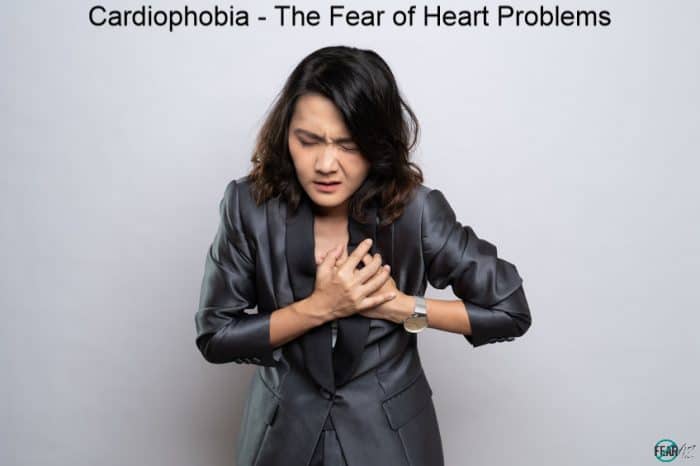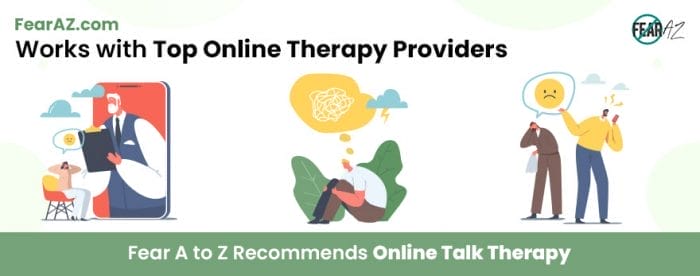Share This Article
The Excessive Fear of Heart Problems
Being scared of heart disease is not unusual. Indeed, people have reasons to fear heart diseases—they can be deadly. But having an excessive fear of heart problems to the point of distress is peculiar. The condition has a name: cardiophobia.
What Causes Cardiophobia?
Under ordinary circumstances, fear elicits a natural fight-or-flight response that permits people to respond quickly to environmental threats. Excessive and irrational fear however is usually a maladaptive response. In people, persistent and unwarranted fear of a certain object can generate overwhelming distress and disrupt their daily lives.
Like other phobias, the exact causes of cardiophobia are unknown. However, it is believed to have originated from many factors or causes. Possible causes include:
Particular Incidents or Trauma
People who have seen a relative suffer from cardiovascular disease have an increased chance of developing cardiophobia. The phobic person might have had a heart attack themself and survived, but it is possible that the episode left a trauma.

Genetic Factors
Like other specific phobias, cardiophobia is an outcome of genetics or a traumatic experience. Someone with a family history of specific phobias or anxiety disorders has a higher likelihood of developing the condition than somebody who doesn’t; this is due to a genetic predisposition.
The genetic tendency to develop a specific phobia or mental disorder is also called a diathesis-stress relationship. Someone with a genetic predisposition won’t develop any symptoms of cardiophobia unless a trigger event instigates fear or anxiety associated with the heart.
A trigger event can be, for instance, the development of hypertension or other associated heart issues. The person who suffers with these will be very conscious of their health and activities that might result in further heart trouble. They may experience anxiety at the slightest chest pain or increase in blood pressure.
Also, someone with a family history of heart illnesses has a likelihood of developing cardiophobia. Those who have lost a loved one because of heart disease could develop cardiophobia as well.
Environmental Factors
When it comes to environmental factors, a person might develop cardiophobia after a frightening event, especially if the person feels out of control. Hearing about or witnessing a traumatic occurrence could also lead to its development. Watching a loved one die from a heart condition might trigger the phobia.
Cardiophobia in Action
Those suffering from this phobia experience intense anxiety when their heart races or when they see a picture of a heart. Even the mere thought of experiencing chest pain could instigate unpleasant emotions.
These feelings arise because they fear death from heart disease. Despite undergoing repeated medical heart examinations and tests, they still presume they are suffering from a particular heart issue.
It is usual for someone to presume that they might be suffering from a heart condition if they develop known symptoms. However, excess anxiety and recurring thoughts of dying from a heart attack or intensifying worry if you exhibit chest pain in spite of being healthy are particular to cardiophobia.
Those suffering from the phobia try to evade every situation that might elicit a heart attack. It is possible that the repeated avoidance can become a compulsion. Such a person won’t just develop obsessive compulsive disorder; they could also experience other health-related issues.
According to DSM-V, avoidance and anxiety influence one’s occupational and social functioning. For instance, one will evade running due to the fear that increased blood pressure could elicit a heart attack.
Consequently, they’ll presume every instance of pain in the left arm or chest to be an indication of an imminent heart attack. Sufferers will even go to the extreme of exercising excessively or eat very little to remain healthy. This could lead to the development of eating disorders. One might even reside near a hospital to obtain instant medical help in case a cardiac emergency arises.
Cardiophobia Symptoms
People with cardiophobia complain of heart palpitations, chest pain, and experiencing a heart attack. They could also end up avoiding situations that lead to variations in their heart rate, such as sports or activities that cause excitement.
In extreme cases, a phobic person might even self-isolate for fear of stressful events that could trigger heart problems. The condition could also result in obsessive behavior like examining the heart rate or blood pressure at frequent intervals.
When cardiophobia is triggered, the phobic could experience several physiological and/or psychological symptoms. Some of the symptoms include:
Physical Symptoms
- Hyperventilation
- Dizziness
- Trembling
- Sweating
- Fainting
- Muscle tension
Psychological Symptoms
- Panic attacks
- Fear of losing control
- Fear of dying
- Fear of losing one’s mind
What Are the Self-help Strategies to Overcome Cardiophobia?
Meditation can prove to be beneficial for people with cardiophobia. In particular, meditation helps divert the mind toward positivity and calmness, enabling the person to avoid negative, distress-causing thoughts.
Meditation can also soothe the nerves, enabling a relaxed state overall. While you might experience a phobic response, meditating before you face the situation may decrease the severity of your symptoms.
Exercise is useful for those with anxiety disorders. Cardiovascular exercise can help alleviate your stress. You’ll discover that exercise works by conditioning the mind to cope with stressful circumstances.
Professional Help
Cognitive Behavioral Therapy
This approach works to help those suffering from anxiety disorders and other conditions. You’ll find that it is equally effective at addressing cardiophobia. You may also discover the reason behind your thinking when it comes to your fear and learn to redirect negative thought patterns.
Exposure Therapy
In this treatment, a therapist exposes a patient to their object of fear. A therapist might begin by showing images of a heart to the patient. In the next stage, the therapist could show videos of the heart.
Dialectical Behavior Therapy (DBT)
The coping skills that patients with anxiety learn from DBT sessions can also help those with cardiophobia. DBT takes about six months to complete.
Mindfulness
This approach aims to teach phobic people to refocus their attention on something else. With this technique, a cardiophobic in the middle of a panic situation can redirect their attention to their breathing pattern and focus on that.
Managing Life with Cardiophobia
Many people still have difficulty in understanding cardiophobia, but for people who are actually affected, the struggle is real. The condition has a far-reaching effect, affecting all facets of life.
After all, it can be isolating, embarrassing, and can often lead to severe anxiety. Because the phobia can be very disruptive to a person’s life, appropriate treatment is recommended to help the person live without excessive anxiety and fear.
While some go into remission, some might still experience anxiety and fear, but it’s manageable. You simply need the right help. If you decide to seek treatment, ensure you connect with an expert with specific expertise or experience in phobia treatment.




